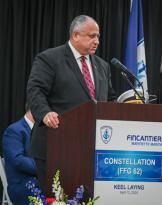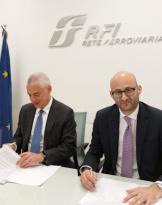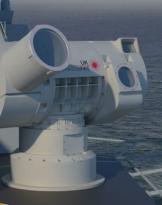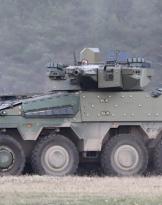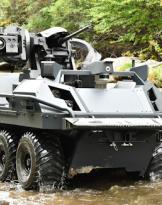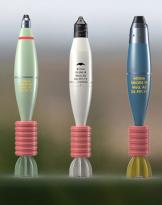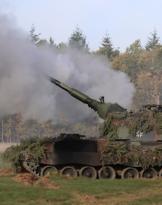Leonardo has been selected by the UK's Defense Science and Technology Laboratory (DSTL) to lead a UK team of companies that will work on a project to protect the UK Army vehicles from current and future threats. As part of the Icarus Technology Demonstrator Program (TDP), the team will need to develop and test a solution for integrating the best existing technologies with Active Protection System (APS), containing costs and preparing them for the implementation of the entire fleet of Army vehicles. Part of the program will see the team led by Leonardo committed to validating a prototype in shooting exercises. Team members working with Leonardo on the Icarus program are: BAE Systems companies, Lockheed Martin UK, Ultra Electronics, Frazer-Nash, Abstract Solutions, Roke Manor Research and SCISYS, and the University of Brighton.
The project is born in response to an operating environment where only armor is not enough to defend itself from the offensive capabilities of future weapon systems, in particular Rocket Propelled Grenades (RPGs) and Anti-Tank Guided Weapons - ATGW). In order to counter these growing threats, industry has developed a number of APS technologies and market solutions for integrating physical protection from an armored vehicle. APS technologies can be of two types: "soft", which aim to quickly detect an incident threatening to disturb or deceive it, and "hard", with the objective of physically intercepting the threat to neutralize it, a known method in the field military as a "kinetic effect".
Although APS technologies are already available today and will continue to be developed by industry, there is no single solution that is appropriate to every situation or even every single threat. The main difficulty lies in being able to quickly and cost-effectively customize a combination of APS technologies for the vehicle, in order to optimize the vehicle's ability to survive before or during use.
In this context, the primary objective of the Icarus program is to develop and validate in the United Kingdom a national electronic architecture for integrated and modular protection systems (Modular, Integrated Protection System - MIPS) that allows the selection, integration and implementation of APS sensors and the most suitable countermeasures to neutralize a wide range of current and future threats. The architecture in question must be not only easy to use but also available at low cost and reliable; moreover, it must lay the foundations for a new MIPS defense standard, similar in principle to that developed for the British GVA (Generic Vehicle Architecture) standard, which guarantees full interoperability between the different devices of a vehicle.
In order to ensure the best cost-effective solution, Leonardo has created a team that puts together a number of British experts in their respective fields and a representation of the UK academic world, which can take advantage of previous UK investments in related technology sectors . Under the Icarus program, in collaboration with Dstl, the team led by Leonardo will set up and implement a Community of Interest (CoI) in the APS sector. One of the main goals of this initiative is to encourage the involvement of the entire industry to ensure that the most advanced protection technologies available, now and in the future, are included in the MIPS architecture.
As part of the technological development program for the “CDAS” (Common Defensive Aids System) protection systems, again in collaboration with the DSTL, Leonardo carries out similar activities for the integration of APS technologies for the British fleet of helicopters. Both the CDAS and Icarus program are based on decades of experience in providing integrated protection solutions and systems to the UK Armed Forces and Allied Forces. Recently, Leonardo supplied protection systems for the British AW159 Wildcat, Apache, Puma, Chinook and Merlin helicopters, which integrate a series of sensors and protection equipment that, taken together, form a complete defense suite. The company also heads the EuroDASS consortium, which supplies the Praetorian protection system for the Eurofighter Typhoon.



